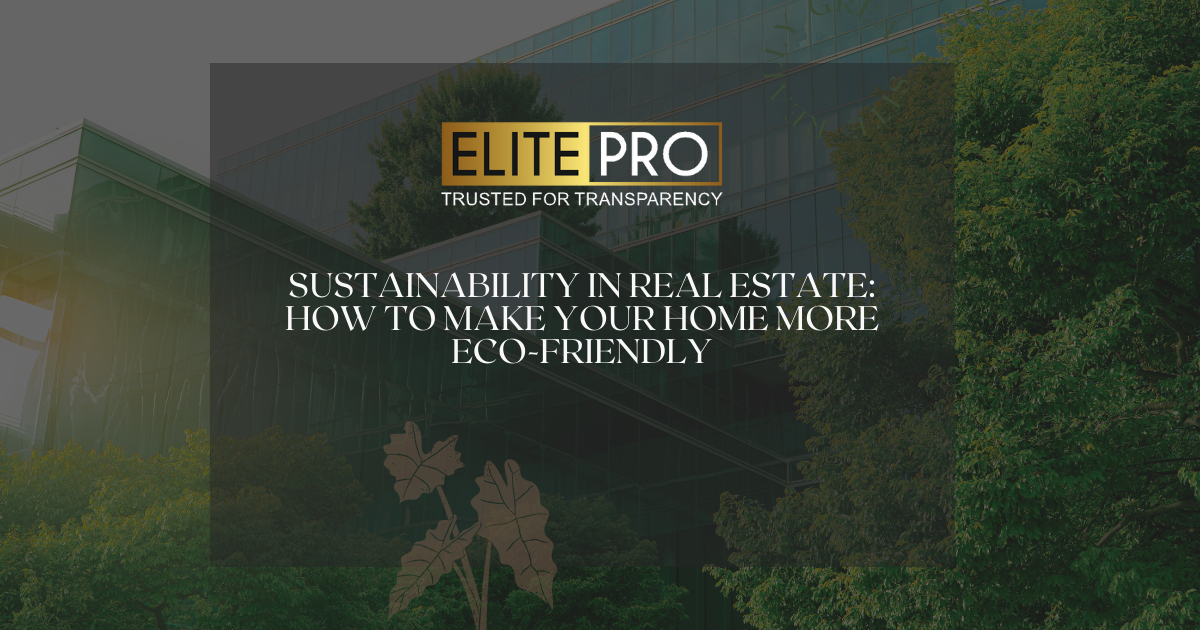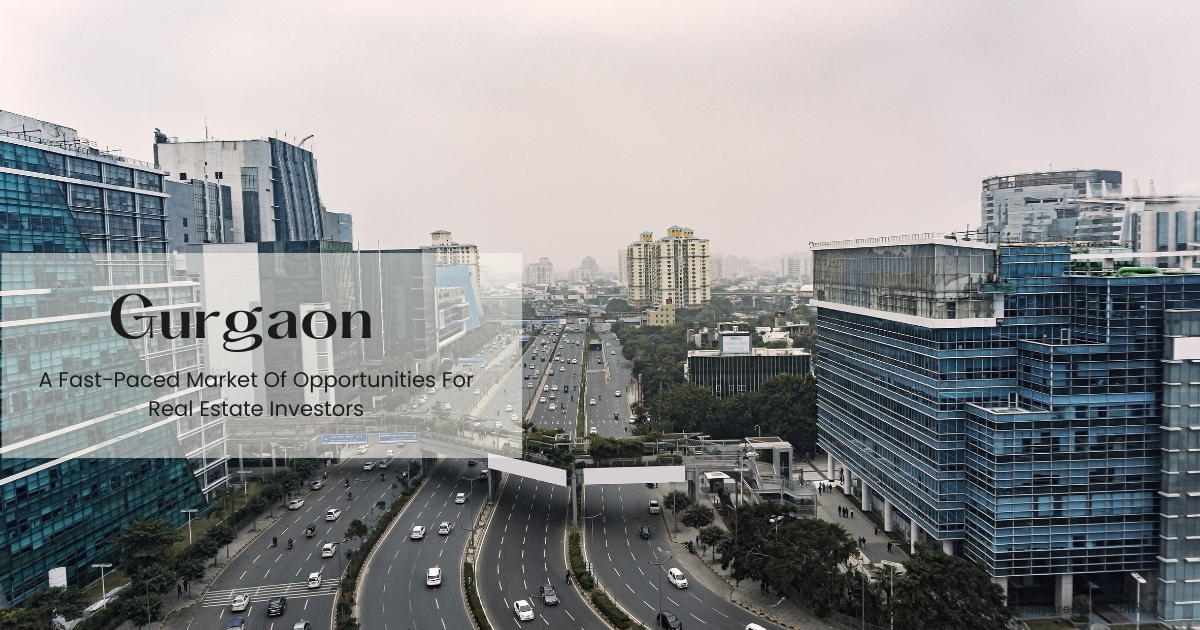
Sustainability in Real Estate: How to Make Your Home More Eco-Friendly
Sustainability in real estate developments involves constructing buildings and communities that prioritize environmental consciousness, economic feasibility, and social responsibility. This entails various considerations such as using energy-efficient designs, promoting water conservation, utilizing eco-friendly construction materials, and implementing an effective waste management system. In recent decades, the real estate sector in India has experienced substantial growth and has become a crucial contributor to the country's GDP. However, this expansion has also raised concerns about the adverse effects of real estate projects on the environment and local communities, resulting in scrutiny and criticism.
The Concept of Sustainable Real Estate
The definition of an environmentally friendly home may vary depending on who you ask. Some believe that adding green features, like solar panels on the roof, is enough to classify a house as green. Others argue that certification through green building programs, such as LEED, is the only way to ensure that a home meets sustainability standards. However, most people agree that building a sustainable home offers numerous benefits to both homeowners and the surrounding community.
Nowadays, various luxury residential projects come with the concept of sustainability. More and more people are interested in constructing environmentally friendly households. In fact, over half of builders expect that at least 60% of their new homes will be considered green by 2020. Whether you're planning to remodel or build a new home, it's crucial to understand the basics of eco-friendly home building.
When constructing an eco-friendly home, it's essential to ensure it's built to last without any negative impact on the environment. This can be achieved by incorporating "green" building materials, which are known for their durability and minimal maintenance requirements. Utilizing these materials not only prolongs the lifespan of your home but also reduces the need for frequent repairs, ultimately saving you money. Additionally, by reducing the maintenance demands of your home, you'll be helping to promote a healthier planet with less waste and pollution.
In the Indian real estate market, there is a growing demand for homes that prioritize sustainability and eco-friendliness. Buyers are increasingly seeking out properties that feature green technologies, such as solar power and energy-efficient appliances, as well as those built with environmentally-friendly materials. Investing in an eco-friendly home now can not only benefit the planet, but it can also be a wise financial decision for those looking to stay ahead of the curve in the future.
Advantages of Sustainable Real Estate Development
Sustainable real estate development is a highly advantageous investment for developers and a crucial requirement for a sustainable future for India's real estate industry. By implementing sustainable practices, it offers numerous benefits that can have a positive impact on the economy, environment, and society. These benefits include reducing operating costs, increasing property values, improving air and water quality, decreasing energy consumption, reducing waste and carbon emissions, and promoting social equity and community well-being. Therefore, sustainable real estate development is not only a profitable investment opportunity but also a responsible choice that contributes towards creating a better future for all.
Economic Advantages:
- Sustainable buildings consume fewer resources, resulting in reduced operating costs.
- Green buildings have higher resale and rental values due to improved indoor air quality, natural light, and thermal comfort.
- Government incentives such as rebates, tax credits, and subsidies are available for green buildings, helping developers cut construction costs and increase profits.
Environmental Advantages:
- Sustainable buildings reduce carbon emissions by up to 40% and provide better indoor air quality.
- Eco-friendly materials used in sustainable buildings conserve natural resources and reduce waste.
- Rainwater harvesting and water conservation measures in sustainable buildings improve the quality of water resources.
Social Advantages:
- Sustainable buildings improve quality of life by providing thermal comfort and better natural light.
- It promotes healthier communities by incorporating walkways, green spaces, and cycle tracks that encourage physical activity and reduce the impact of vehicular pollution.
- Sustainable development can help create inclusive communities that provide access to basic amenities for all, including low-income households and people with disabilities.
Practical Ways to Execute for a More Eco-Friendly Home
Looking to make your home more eco-friendly? Here are a few practical ways to get started and embark on your journey toward a more sustainable lifestyle. These tips will help you reduce your carbon footprint and create a healthier living space for you and your family. Give them a try and see the difference they can make! Moreover, If you're looking for eco-friendly residential property in Gurgaon, you can check some new launches by top developers.
- Build a smaller home to reduce eco-footprint and energy usage
- Smart Meters are great for reducing carbon footprint and decreasing energy bills
- Consider orientation to take advantage of natural sunlight and wind patterns
- Install energy- and water-efficient appliances and alternative water sources
- Choose recycled, renewable, and/or locally sourced building materials
- Install energy-efficient lighting and properly air seal and insulate the home
- Consider going solar and/or electric vehicle-friendly when building
- Ensure ductwork is properly sized and sealed for HVAC efficiency
Amid the global crisis caused by the coronavirus outbreak, the real estate industry has seen a promising trend - the rise of green buildings. These impressive structures prioritize sustainability and energy efficiency, providing residents with a healthy and eco-friendly living environment while minimizing their impact on the environment. The eco-friendly homes in Gurgaon are highly valued and often command a premium compared to traditional homes. Green buildings are crucial, not only in combating the current pandemic but also in taking proactive measures against future outbreaks and similar diseases. All stakeholders in the real estate industry need to embrace this noble cause of sustainability and prioritize the construction of green buildings. This will ensure a brighter and healthier future for generations to come.
Innovations that Developers are Using in Residential Real Estate
Sustainability is a widely discussed topic these days, and it's easy to see why. Climate change and environmental deterioration are significant issues that have emerged in recent times. Sustainable real estate development is a promising solution to tackle these problems, and it comes with several advantages. In India, the real estate industry consumes a significant amount of energy and produces greenhouse gas emissions, making it a vital area for innovation and progress. In addition, the government has also introduced incentives to encourage building owners to undertake these upgrades, making it easier for them to contribute to a more sustainable future.
Sustainable real estate development is an exciting field that's constantly evolving. In recent years, developers have been exploring new technologies and materials that can help reduce the environmental impact of construction. Some of these innovations include using eco-friendly cement, bamboo, and recycled wood in building projects. Another exciting development is the incorporation of smart home technologies in new developments, which can help residents manage their energy consumption and reduce waste. Additionally, developers are exploring new building designs and construction methods that prioritize energy efficiency, water conservation, and waste reduction. There's no doubt that the future of sustainable real estate development is looking bright!
With sustainability taking center stage in the world, the real estate industry in India has quickly adopted new technologies and practices that reduce its environmental impact. The use of green roofs and walls is becoming a common practice in urban areas, which helps to insulate buildings and reduce the heat island effect, a significant issue in densely populated cities. Renewable energy sources, particularly solar power, have become increasingly popular in promoting sustainable real estate development in India. Incorporating solar panels into the design of new buildings not only reduces carbon footprint but also cuts down on energy costs over time. Moreover, upgrading older buildings significantly reduces energy consumption and greenhouse gas emissions.
To Conclude
The practice of sustainable real estate development yields a multitude of advantages that positively impact both the environment and the economy. Among these benefits are the reduction of greenhouse gas emissions, lowered operating costs, improved health and well-being of tenants, and an increase in the overall property value. The real estate industry must adopt sustainable development practices in order to ensure a healthier future for our planet and all of its inhabitants.
This can be accomplished through the implementation of renewable energy sources, energy-efficient building designs, and the integration of green spaces. In particular, India's real estate industry has the potential to lead the way in sustainable development practices, given the government's backing of green initiatives and the increasing awareness among developers and investors. By embracing these initiatives, we can look forward to a future of sustainability for India's real estate industry.





